Annual Reports Waste Production of waste in the daily purchase for Catalunya Annual Reports. Catalan Consumer Agency
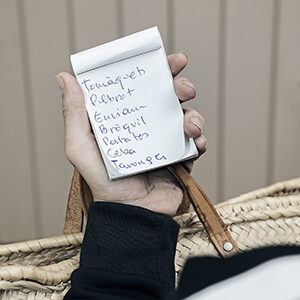
The study analyzes the production, recyclability and CO2 gas emission associated with packaging waste generated by the standard shopping basket. The aim of the study is to analyze changes in the practices of the selected establishments and assess the changes in packaging over time in order to make a proposal for applicable measures according to the type of product and establishment.
Autorship: Rezero
Overpackaging and superfluous packaging in everyday products. Waste Agency of Catalunya
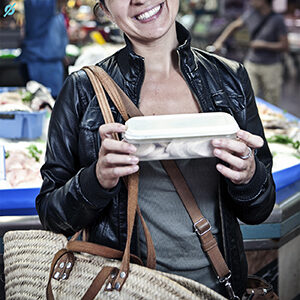
This study analyzes overpackaging in Catalunya. One of the most relevant contributions of this work is the creation of a database on the different containers present in the Catalan market and which can be used as a first reference for the application of ecodesign measures that guarantee the minimum environmental impact. The study also aims to raise awareness of the degree of overpackaging and the presence of superfluous packaging of some of the most consumed food and cleaning products on the Catalan market and transfer these results to manufacturers, distributors, consumers and regulators.
Autorship: Rezero
Local trade and sustainability. The local trade’s commitment for products’ environmentally valuable information and the reduction of disposable packaging. Advisory Council for Sustainable Development (CADS)

The study follows up on the “Municipal waste prevention: a challenge for Catalunya” report and delves into the opportunities for environmental improvement that can be applied in an economic and cultural field of sufficient relevance in our country such as municipal markets and, by extension, local trade.
Autorship: Rezero
Life Cycle Analysis of Light Container Management by means of Integrated Management and Deposit and Return Systems Spain

This study provides quantitative, objective and quality environmental data to be used as a criterion in the decision of the selection of the most environmentally correct beverage packaging management system, IMS or DRS. This analysis determines the environmental impacts associated with each management system and indicates the stages of the life cycle with the greatest impacts.
Autorship: Innedit
Trends and environmental and social effects of the container production, distribution and consumption policies in Catalunya
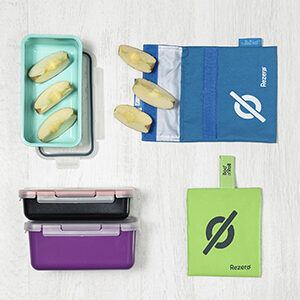
This study aims to make a global diagnosis of the state and trends of packaging consumption in Catalunya, the generation of packaging waste and its destination. The management costs of the current system are also analyzed.
Autorship: Rezero
Limitation on the use of Disposable Plastic Bags
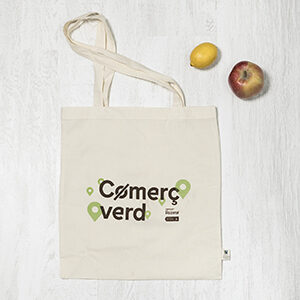
The main objective of this study is to assess the possible alternatives to the use of single-use plastic commercial bag with handles that could be applied by the Catalan trade sector and propose effective measures to reduce and replace plastic bags.
Autorship: Rezero
The economic savings associated with household waste prevention

The purchasing decisions we make as consumers are directly related to the production of waste and the economic expenditure of households. This study takes an approach to the economic savings associated with waste prevention practices for a standard Catalan family, analyzing the consumption and waste generation habits of five families in the metropolitan area of Barcelona for a few months.
Autorship: Rezero i Agència de Residus de Catalunya.
The prevention of municipal waste: a challenge for Catalunya

The study provides a clear and useful analysis of the situation in Catalunya with regard to environmental health in the field of consumption and waste generation and the policies that have been applied so far with the necessary perspective to undertake a radical change towards more sustainable models. It exposes a collection of interesting experiences in relation to waste prevention and responsible consumption and offers a set of tools for businesses, local authorities, civil society and the Catalan Government to work for the reduction of waste in particular and for a change in the consumption model in general, based on social responsibility and sustainability.
Autorship: Rezero, Generalitat de Catalunya, Departament de la Vicepresidència, Consell Assessor per al Desenvolupament Sostenible de Catalunya (CADS).
Library of Things
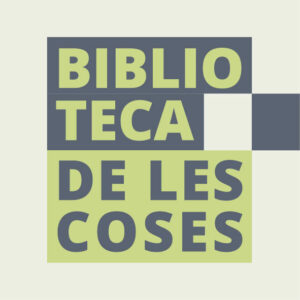
The current consumption and production model leads us to gather objects at home which we hardly use but that take up space, cost money and end up becoming waste. It is estimated that a family owns between 3,000 and 4,000 objects that they barely use and that will probably never reach the end of their useful life. A model which is incompatible with the finite planet we live in.
For this reason, Rezero together with Nusos cooperativa and the involvement of a group of volunteering neighbours, have designed and implemented the first Library of Things of Catalunya, which opened in January 2020 and is located in the Casal Ca l’Isidret of the Sant Martí District in Barcelona. The project involved the study and analysis of experiences that are already being developed in other cities around the world of community spaces where residents can borrow or share objects and at the same time be trained on how to use and repair them.
The library offers objects that are seldomly used and which allow a high use turnover, such as DIY or gardening tools, leisure objects and orthopaedic equipment, among others, that have been donated by people, entities and companies and which are classified by categories such as Leisure and Adventure, DIY, Cleaning and Home, Care and Health or Office. The library is also a space to share knowledge and experiences in the neighbourhood and where regular workshops and talks on repair and responsible consumption are carried out. The project has a traceability system through the use of QR codes and free software, which will provide valuable data on the use of each article, types of donors and users, maintenance needs and derived environmental benefits.
The Library of Things is a practical example of another economic model – the social and solidarity economy. The fact of using an object without owning it, opens a new social and environmental perspective, of collaboration, of reducing the use of natural resources, it avoids waste generation and saves the users money. In addition, the project involves a neighbourhood and proximity facility and a face-to-face service that generates a space for relationship, trust and mutual support. It is an example of shared consumption fostered within the community and associationism; a people-to-people project.
This pilot test has had the support of Barcelona City’s Council, the Waste Agency of Catalunya and Barcelona’s Metropolitan Area as well as the collaboration of Casal Ca l’Isidret and Taula Eix Pere IV.
Zero Beach

80% of the Mediterranean’s marine litter comes from land-based sources, mainly from tourism and beach leisure activities. 15% of this waste gathers on the beaches, 70% is on the seabed and the remaining 15% floats on the water. Plastics, including cigarette butts, make up more than 80% of all beach waste and more than half of these are disposable items (beverage bottles, food packaging, bags, glasses and straws). …).
During the summer of 2019, Rezero and Eco-Union – with the support of Catalunya’s Waste and Be-Med and in collaboration with Barcelona’s Metropolitan Area and the municipalities of Castelldefels, El Prat de Llobregat and Gavà- carried out pilot tests for the prevention of marine litter on the beaches. The aim was to demonstrate that there are viable and easily applicable measures to reduce the amount of waste accumulated in the sand and the sea and improve the health of the beaches.
The measures adopted included the delimitation of smoke-free spaces where users were informed that they could not smoke on those fragments of the beach for a week, the installation of a collection point to encourage the return of beverage containers consumed on the beach through an economic incentive of 5 cents (simulating a bottle deposit and return system) as well as the installation of information panels on each beach indicating the environmental problems of the most commonly single-use elements found on beaches and pointing out existing solutions to prevent their waste.
During the three-week pilot test, 2,600 people were informed about how we can achieve a Zero Waste Society. It was concluded that the existence of smoke-free beaches can reduce the amount of cigarette butts in the sand by 81% and that with the promotion of reusable alternatives and by applying an economic incentive for the return of beverage containers, it is possible to reduce the disposal of single-use bottles and cans by 40%.
reWINE

Despite Reuse being a priority in the European waste hierarchy, it is clearly declining in Catalunya. Wine bottles are currently not reused in any of their distribution channels, not even in hotels, restaurants and catering, as is the case with other beverages such as soft drinks or beer. 6% of bottled drinks consumed in Catalunya are wine bottles – with 147 million consumed yearly. 43% of them are not recycled.
ReWINE is a project to promote the reuse of bottles in the wine sector, in order to reduce the generation of waste, greenhouse gases and to save costs. ReWINE wants use experimental data to prove the technical, sanitary and quality viability of a sustainable system of collection, cleaning and reuse of glass bottles in the wine sector of Catalunya. Therefore, a pilot test has been carried out involving consumers, wineries, bars, restaurants, distribution companies, shops, supermarket chains and landfills for the reuse of wine bottles -from washing, labeling, bottling and distribution to market until collection.
The pilot test, promoted jointly with Parc de Recerca UAB, Agència de Residus de Catalunya, Inèdit and Ètim online, began in July 2018 and ended in February 2019. Almost 100 points of bottle sale and return have taken part: 7 wineries, 54 restaurants, 32 shops or supermarkets, 3 waste collection depots and 2 distribution companies. During this time, more than 130,000 bottles of wine have been put up for sale, a total of 82,621 have been recovered for reuse and a total of 37 tons of glass waste have been avoided. The project has shown that such a system can be a cost-effective solution for businesses and the environment.
Cadaqués Retorna
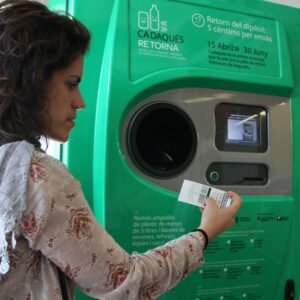
9 million beverage bottles are put up for sale every day in Catalunya, only 3.5 of these are collected selectively. The remainder – 5.5 million – end up dumped, incinerated or scattered around. This has a significant environmental impact and is a waste of raw materials.
From April 15 to June 30, 2013, Rezero, together with Retorna and the City Council of Cadaqués -and under the Agència de Residus de Catalunya’s supervision- conducted a pilot test for a Deposit and Return System of beverage containers in Cadaqués, as a complementary system to the existing management one.
With the collaboration of 10 establishments in the town (8 small shops and 2 supermarkets) and the managers of 4 vending machines, the metal and plastic disposable water, beer, juice and soft drink (including energy drinks and mixed drinks) containers were incorporated into the Deposit and Return system. These were selected for being the most consumed products, for their acceptance in the automatic return machines provided for the test and for being the most likely to be abandoned in the environment. These containers were marked with a bar code for traceability and the economic incentive for their return was of 5 cents.
The test was well received by businesses and the public – 85% of the people of Cadaqués would like the system to be implemented in Catalunya. The return level of beverage bottles was 76% of the sales (81,183 containers), reaching 91% at the end of the pilot test. The selective collection of these bottles multiplied by five, going from 12% to 66%. In addition, the material recovered through this system has the highest quality standards of the recycling industry- increasing its value as well as the possibilities of making new packaging of it.
In a real implementation, it was estimated that the net savings for the City Council in the management and collection of waste would be between 23,000 and 33,605 euros / year – about ten euros per inhabitant and year. The mayor of Cadaqués also stressed that the town was much cleaner.
Thus, the results of the pilot test show the viability of such a system in our country, both economically and technically and socially, a recycling option that already works successfully in over 40 countries and regions around the world – in coexistence with the plastic collection containers.